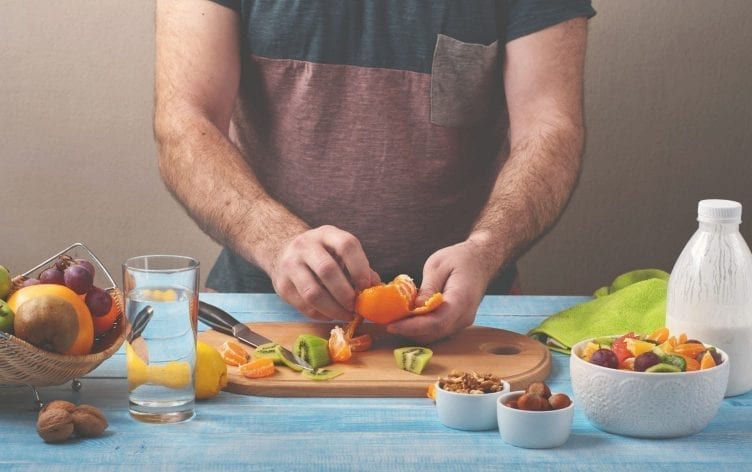There’s something so, so
good about a stellar snack. At its best, it can be the ideal pick-me-up
prior to, or after, a really tough workout or it could be a
well-deserved break when that day at the office feels like it’s never
going to end. But snacking isn’t an automatic win. At its worst, it can
be the culprit for deterring your healthy progress and ultimately
sabotage your weight-loss goals.
Here, experts weigh in on the biggest snacking mistakes you’re probably making and how to fix them.
It’s common to try to keep snack calories and portions to a minimum,
because you’re under the impression something’s wrong with reaching in
the pantry in between meals. “But that’s not true,” says Kristen
Peterson, RD, owner of PrimeLife Nutrition. “Snacking helps you
avoid getting hungry,”
she says. “Plus, eating 4–5 smaller and more frequent meals throughout
the day is a proven strategy for increased weight loss.”
The fix: Instead of snacking on something low-cal
that won’t satisfy you (like carrots or celery sticks) pair them with 2
tablespoons hummus or peanut butter, suggests Peterson. This more
filling option won’t break the calorie bank and should help
keep you from overeating later.
If you’ve ever reached for something sweet or salty out of pure
boredom you’re definitely not alone. “Sometimes it’s the candy bowl in
the office or late-night eating while watching TV,” says Melissa
Boufounos, certified holistic nutritionist. Over time, these small bites
can add up and prevent you from reaching your goals.
The fix: Before reaching for a snack,
do a hunger check.
“On a hunger scale of 1–10, 1 being not hungry at all and 10 being the
hungriest you’ve ever felt, you should aim to eat when you’re around 7,”
says Boufounos.
“Things like nuts,
seeds and
dried fruit can be great, nutrient-dense snacks, but they can be easy to overeat if you’re not careful,” says Boufounos. Check out these
common portion-size mistakes because when it comes to eating healthy foods, it’s still possible to overdo it.
The fix: Instead of eating right out of a bag of nuts and seeds, serve yourself
the appropriate portion size.”
“If you have a lighter lunch at noon and didn’t remember to pack any
snacks, you’re almost guaranteed to reach for something less healthy on
your way home or overeat at dinner,” says Peterson.
The fix: Make
snack prep a part of your
regular meal prep routine, advises Peterson. You can also keep some crackers and cheese or
healthy homemade trail mix at
the office. “It’s always better to have something on hand in case, even
if you’re not hungry and end up saving your snack for the next day.”
Both
protein and
fat are essential
macronutrients that
help keep you feeling full and satisfied. “If you have something like
watermelon for a snack at 10 in the morning, you’re going to be pretty
hungry before lunch is even approaching,” says Peterson. “When you just
eat a fruit or vegetable as a snack, it can raise your
blood sugar, then drop it, leaving you feeling hungry within an hour.”
The fix: Opt for snacks that incorporate both a
healthy fat or
protein, like almonds for example, with your fruit. “This will help you
stay fuller longer and avoid extra servings at lunch or dinner because
you’re starving.”













Comments
Post a Comment